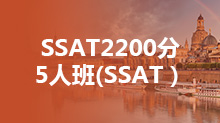下面小编为同学们整理了SAT2美国历史IJK开头的词汇,大家一起看看吧。
I
Impressment
During the 1800s, a British policy whereby the British boarded American ships in search of British naval deserters, whom they would force (impress) back into service. Often naturalized or native-born Americans were also seized, provoking outrage in America. Impressment was one of a string of British violations against U.S. neutrality rights that helped spark the War of 1812.
Indentured servitude
The system by which adult males—usually English—bound themselves to labor on plantations for a fixed number of years in exchange for transport to the colonies and eventual freedom. Some immigrants came willingly, while others were manipulated and kidnapped; often, the indentured servents were never able to secure their release due to debt. The first Africans brought to the colonies were also indentured servants, but in the seventeenth century, as massive, labor-intensive tobacco plantations spread throughout the South, slavery became the preferred means of labor.
Independent Treasury Bill
Signed into law in 1840. The bill established an independent treasury to hold public funds in reserve and prevent excessive lending by state banks, thus guarding against inflation. The Independent Treasury Bill was a response to the panic of 1837, which many blamed on the risky and excessive lending practices of state banks.
Indian Removal Act
Granted Jackson the funds and authority to move Native Americans to assigned lands in the West. Passed in 1830, the Indian Removal Act primarily targeted the Cherokee tribe in Georgia as part of the federal government’s broad plan to claim Native American lands inside the boundaries of the states.
Industrial Workers of the World (Wobblies)
A radical labor organization founded in 1905. The IWW advocated revolution and massive societal reorganization. The organization faded away around 1920.
Inflation
The increase of available paper money and bank credit, leading to higher prices and less-valuable currency.
Interstate Commerce Act
Passed in 1887. The Interstate Commerce Act forbade price discrimination and other monopolistic practices of the railroads.
Intolerable Acts
A combination of the four Coercive Acts—meant to punish the colonists after the 1773 Boston Tea Party—and the unrelated Quebec Act. Passed in 1774, the Intolerable Acts were seen as the blueprints for a British plan to deny the Americans representative government and were the impetus for the convening of the First Continental Congress.
Iran-Contra affair
A series of investigations in 1987 exposed evidence that the U.S. had been selling arms to the anti-American government in Iran and using the profits from these sales to secretly and illegally finance the Contras in Nicaragua. (The Contras were a rebel group fighting against the communist-linked Sandinista regime in Nicaragua.) Oliver North, a member of the National Security Council, had organized the operation from within the White House. There was no proof that Ronald Reagan was aware of North’s actions.
Iron curtain
A term coined by Winston Churchill for the area of Eastern Europe controlled indirectly by the USSR, usually through puppet governments. This area was cut off from noncommunist Europe.#p#SAT2美国历史词汇表:J#e#
J
Andrew Jackson
President from 1829 to 1837. A strong-willed and determined leader, Jackson opposed federal support for internal improvements and the Second Bank of the United States and fought for states’ rights and Native American removal. His opponents nicknamed him “King Andrew I” because of his extensive and unprecedented use of the veto power, which they deemed to be tyrannical and against the spirit of democracy. Before becoming president, Jackson gained popularity as a general who launched aggressive military campaigns against Native Americans and led the U.S. to a stunning victory over British forces at the Battle of New Orleans in January 1815.
John Jay
One of the authors of The Federalist Papers. Jay was instrumental in the drafting of the Constitution.
Jay’s Treaty
1795 treaty which provided for the removal of British troops from American land and opened up limited trade with the British West Indies, but said nothing about British seizure of American ships or the impressment of American sailors. While the American public criticized the treaty for favoring Britain, it was arguably the greatest diplomatic feat of the Washington administration, since it preserved peace with Britain.
Jazz Age
Nickname for the 1920s due to the development and flourishing of jazz music, as well as the highly publicized (if exaggerated) accounts of wild parties, drinking, and dancing.
Thomas Jefferson
Third president of the United States (1801–1809). Jefferson resigned as George Washington’s first secretary of state in opposition to Alexander Hamilton’s continued efforts to centralize power in the national government. Along with James Madison, Jefferson took up the cause of the strict constructionists and the Republican Party, advocating the limitation of federal power. He organized the national government according to Republican ideals, doubled the size of the nation through the Louisiana Purchase, and struggled to maintain American neutrality in foreign affairs.
Andrew Johnson
President from 1865 (after Lincoln’s assassination) until 1869. Johnson’s plan for Reconstruction in the South was considered too lenient by the Radical Republicans in Congress; as a result, Congress fought his initiatives and undertook a more retributive Reconstruction plan. Johnson’s relationship with Congress declined steadily during his presidency, culminating in impeachment proceedings in 1868. He was ultimately acquitted.
Lyndon B. Johnson
John F. Kennedy’s vice president until Kennedy’s assassination made him president in 1963. He stayed in office until 1968, when he declined to seek reelection. Johnson is best known for his attempts to enact his Great Society program at home and his decision to commit troops to Vietnam.
Joint Chiefs of Staff
Created by FDR in February 1942 to oversee the rapidly growing military. The Joint Chiefs included representatives from the army, navy, and air force.
Joint-stock companies
Formed in the absence of support from the British Crown, joint-stock companies accrued funding for colonization through the sale of public stock. These companies dominated English colonization throughout the seventeenth century.
Judicial review
Established by Chief Justice John Marshall in Marbury v. Madison (1803). The principle of judicial review held that the Supreme Court could declare an act of Congress unconstitutional.
Judiciary Act of 1789
Created the American court system. The act established a federal district court in each state and gave the Supreme Court final jurisdiction in all legal matters.#p#SAT2美国历史词汇表:K#e#
K
Kansas-Nebraska Act
Passed in 1854. The act divided the Nebraska territory into two parts, Kansas and Nebraska, and left the issue of slavery in the territories to be decided by popular sovereignty. It nullified the prohibition of slavery above the 36º30’ latitude established by the Missouri Compromise of 1820.
John F. Kennedy
Democrat, served as president from 1961 until his assassination in November 1963. A young and charismatic leader, Kennedy cultivated a glorified image in the eyes of the American public. His primary achievements came in the realm of international relations, most notably the peaceful resolution of the Cuban Missile Crisis.
King George III
King of England from 1760–1820. Colonists were torn between loyalty to the king and resistance to acts carried out in his name. After George III rejected the Olive Branch Petition, the colonists considered him a tyrant.
Martin Luther King Jr.
A prominent Civil Rights leader who rose to fame during the 1956 Montgomery bus boycott. Throughout the late 1950s and early 1960s, King tirelessly led the struggle for integration and equality through nonviolent means. He was assassinated in 1968.
Henry Kissinger
National security adviser and, later, secretary of state under President Nixon. A major proponent of détente, Kissinger often met secretly with communist leaders in efforts to improve East-West cooperation.
Kitchen Cabinet
Jackson’s presidential cabinet, dubbed so because the members were his close political allies and many had questionable political skill. Instead of serving as a policy forum to help shape the president’s agenda, as previous cabinets had done, Jackson’s cabinet assumed a mostly passively supportive role.
Knights of Labor
One of the first major labor organizations in the U.S., founded in 1869. The Knights fell into decline after one of several leaders was executed for killing a policeman in the Haymarket riot of1886.
Know-Nothing Party
The American Party. The Know-Nothings took the place of the Whig Party between 1854 and 1856, after the latter’s demise. They focused on issues of antislavery, anti-Catholicism, nativism, and temperance. The party collapsed during the latter half of the 1850s, in part because of the rise of the Republican Party.
Korean War
On June 24, 1950, troops from the Soviet-supported People’s Democratic Republic of Korea, known as North Korea, invaded the Republic of Korea, known as South Korea. Without asking for a declaration of war, Truman committed U.S. troops as part of a United Nations “police action.” The Korean War was conducted by predominantly American forces under the command of General Douglas MacArthur. Limited fighting continued until June 1953, when an armistice restored the prewar border between North and South Korea.
Korematsu v. U.S.
In this 1944 case, the Supreme Court upheld FDR’s 1942 executive order for the evacuation of all Japanese-Americans on the West Coast into internment camps. The camps operated until March 1946.
Ku Klux Klan (KKK)
A southern vigilante group founded in 1866 in Tennessee. By 1868, the Klan operated in all Southern states. The group often conducted raids and lynchings to intimidate black voters and Republican officials. The Klan faded away in the late nineteenth century, but resurfaced in 1915. Capitalizing on middle-class Protestant dismay at changing social and economic conditions in America, the Klan took root throughout the South as well as in Western and Midwestern cities, and was dominated by white native-born Protestants. Membership and influence declined again in 1925, when corruption among Klan leaders was exposed.
以上就是关于SAT2美国历史词汇的IJK部分,希望对同学们的备考有所帮助,更多SAT干货敬请关注新航道SAT考试频道。




